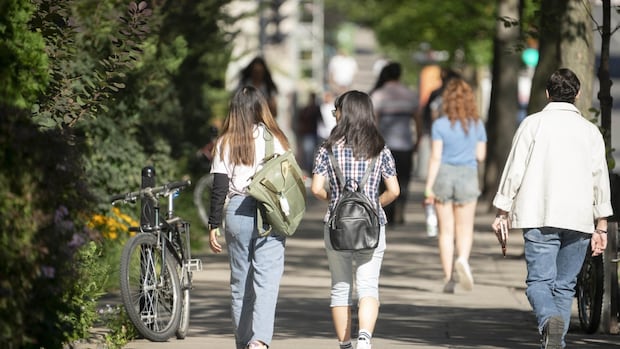The number of international study permits granted to foreign students in Canada experienced a significant decline in the first half of this year, with nearly 90,000 fewer permits issued compared to the same period last year.
This decrease follows the implementation of a cap on international student visas by the federal government in early 2024.
According to Immigration, Refugees, and Citizenship Canada (IRCC), from January to June 2024, Canada issued 125,034 international study permits. In contrast, during the same period this year, the number dropped to 36,417.
IRCC shared data for the first halves of 2024 and 2025, revealing a decrease in the number of applications for international student visas as well. The department received 302,795 applications in the first half of 2025, down from 398,675 in the same period of 2024 and 575,535 in the first half of 2023.
Laura Blondeau, a spokesperson for Immigration Minister Lena Diab, stated that the decline in applications in 2025 indicates the effectiveness of the measures implemented. The agency remains committed to attracting top global talent to support economic growth.
Efforts to attract international students have been crucial for Canadian colleges and universities in recent years, particularly as they faced declining post-secondary funding and tuition freezes in some provinces. These institutions heavily rely on international student tuition fees, which are substantially higher than those paid by domestic students.
In response to the declining numbers, the federal government introduced stricter requirements for international students in late 2023 and announced reductions in undergraduate study permits by 35% over two years starting in 2024. Subsequently, an additional 10% decrease was implemented, extending to graduate and doctoral students who were previously exempt. Eligibility for the post-graduate work permit program was also tightened.
Colleges and universities nationwide have voiced concerns about the negative impact of the cap on their financial stability, academic offerings, and broader communities.



